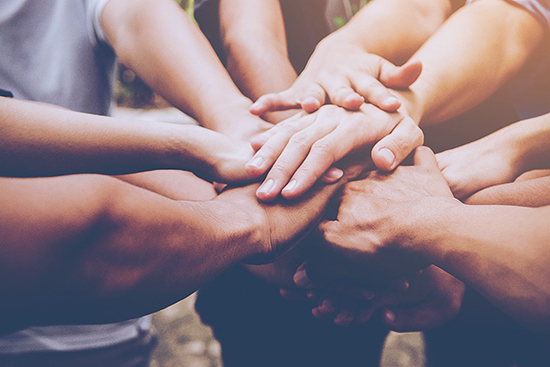Mental health is a universal human right - World Mental Health Day 2023
October 10, 2023 - Defence Stories

World Mental Health Day is observed annually to raise awareness of the importance of mental health and wellness. This year’s theme is 'Mental health is a universal human right'. We are asked to reflect and act on making this theme a reality.
The pandemic and its unprecedented levels of stress, highlighted the need to provide support for increasing mental health needs. As a result, communities and workplaces have made progress in how mental health is approached. While this is good news, there is still more work to be done. For example, the UN Human Rights Office reports that people with mental health conditions experience disproportionately higher rates of poor physical health as well, and that stigma is a significant detriment to quality care and access to services.
Let’s Reflect!
Stigma can include stereotypes, prejudice, and discrimination toward an individual or group of people because of a characteristic they share. There are various levels of stigma [PDF - 1.9MB] related to mental health that are important to understand:
- individual (unfair treatment, or internalized shame that people with mental illness have about their own condition);
- interpersonal stigma (attitudes that others have about mental illness); and
- institutional/population stigma (involving policies, governance structures, training and knowledge building systems, and practices of government and other organizations that intentionally or unintentionally limit opportunities for people with mental illness and perpetuate health and social inequities).
Have you noticed stigmatizing behaviours, attitudes, or societal structures around you?
Let’s Act!
Our actions can contribute to the goal of supporting mental health as a universal human right. Being aware and acting in the following ways is achievable:
- Advocate for review of policies and practices with a lens to decrease embedded stigma and to change institutional culture;
- Involve those with lived experience of mental health issues in decisions that affect them individually or as a group;
- Advocate for continued mental health and well-being learning opportunities for Defence Team members;
- Invest appropriate time and resources to mental health care;
- Challenge the myths of mental health and stigma;
- Use person first language, for example “a person with or living with a mental health issue,” and abandoning use of labels like “crazy,” “insane,” and even“mentally ill,”
- Be aware of your attitudes and behaviours;
- Speak up when you hear or see stigmatizing attitudes or behaviours and educate others where you can; and
- Be compassionate and avoid comparing experiences or diminishing others’ feelings.
Being aware of the disproportionate challenges affecting peoples with mental health issues, understanding where stigma originates in order to stifle it, and being an ally in the workplace, are things we can do to support the health of our team while simultaneously contributing to making mental health a universal right.
Leith Fermin-Rix, B.Sc., M.Ed.
Leith Fermin-Rix, B.Sc., M.Ed., is part of the Strengthening the Forces team where she supports the promotion of positive mental health and social wellness.
Véronic Clair, MD MSc PhD CCFP FRCP(c)
Véronic Clair is Strengthening the Forces’ Section Head and provides leadership and technical expertise across all portfolios.